By Adeyemi Adepetun (Lagos) and Sodiq Omolaoye (Abuja)
• Nigerian fact checkers fight election misinformation with Full Fact’s AI tools
With less than 10 days to the general elections, a new report by frontline pro-democracy think tank, Centre for Democracy and Development (CDD), yesterday, revealed how top presidential candidates employ the services of social media influencers to spread falsehood about their opponents.
The 10-page report, titled ‘Online operations: Nigeria’s 2023 social media election campaigns’ chronicles the challenge of misinformation, mal-information and disinformation, which it said have dominated social media platforms as the country counts down to the polls.
The CDD report aligned with investigation conducted by the British Broadcasting Commission (BBC) in January, which discovered that political parties in Nigeria are secretly paying social media influencers to spread disinformation about their opponents ahead of general elections.
major aspect of the report, signed by CDD Director, Idayat Hassan, focused on political actors, activities that drive the spread of fake news, misinformation, and disinformation.
The report identified a multiplicity of actors whose activities muddy the water and make sorting fact from fiction difficult for Nigerians in the build up to the polls.
Noting that the disinformation ecosystem has created lucrative opportunities, particularly for youth, the report revealed how the most visible political influencers on social media, who are hired by political parties or individual candidates, earn up to N500,000 ($1,200) a month, while those with smaller followings are likely to receive about N50,000 ($110).
The report states: “Though not all influencers are paid, those that are, believe that politicians have increasingly come to recognise the important role social media plays in politics and are investing more resources in it as a result. They argue that young citizens currently receive most of their information from digital platforms and that social media influencers even determine the direction and narrative taken by traditional media.
“This means that their influence extends beyond the online sphere, which is important. In rural communities, traditional media, in particular local radio, still retains a strong influence. Less prominent, but still important, are public relations firms, such as Mint Reach, who are playing an increasingly prominent role in handling the digital campaigns of frontline presidential candidates.”
prominent, but still important, are public relations firms, such as Mint Reach, who are playing an increasingly prominent role in handling the digital campaigns of frontline presidential candidates.”
MEANWHILE, Full Fact, a UK-based charity, which tackles misinformation through fact checking and campaigns, is partnering with organisations dedicated to promoting credibility in information during the upcoming elections.
Collaborating with International Fact Checking Network (IFCN) members: Africa Check, Dubawa, and FactCheckHub, Full Fact will expand the use of its AI tools to stop the spread of misinformation during the election.
The project, made possible by a $2 million grant from Google’s philanthropic arm, Google.org, has already seen remarkable results.
With the support of seven dedicated technical Google.org Fellows, who worked on a pro bono basis, Full Fact’s AI technology has seen over 1,000 increase in claim detection (i.e. identifying which claims are most important to fact-check) and helped scale their fact-checks to appear in 237 million search results in 2020.
The technology, developed by Full Fact since 2015, will now be used in a Nigerian election for the first time, offering instant transcription services and real-time fact checking during debates, speeches and throughout the election process to increase the speed and accuracy of information dissemination.
Full Fact will also provide ongoing training and support to its local fact checking partners during the election process.
Despite the emergence of organisations and initiatives aimed at countering the spread of misinformation and promoting accurate information in Nigeria, fact checking still faces challenges such as limited resources and difficulties accessing information.
Full Fact is determined to make it harder for false and misleading claims to spread and erode trust in democracy.
“Every vote should be an informed vote,” says Will Moy, CEO of Full Fact, who added: “We’ve seen firsthand how bad information spreads during an election and it can’t be allowed to undermine democracy. Our AI tools, with support from Google.org, help fact checkers stay ahead of false claims and promote accurate information. We’re proud to support our partners in Nigeria during this important time.”
Government Affairs and Public Policy Manager, Nigeria, Google, Dawn Dimowo, said at Google.org, “we’re dedicated to using our resources and technology to make a positive impact on society.
“Continuing our support for Full Fact in Nigeria is an exciting opportunity to help stop the spread of misinformation and promote accurate information during the election. This builds on our ongoing efforts to support local fact checking initiatives. We’re proud to support this important project and make a positive difference in the world.”
Source: The Guardian


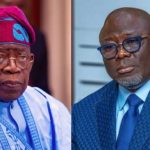
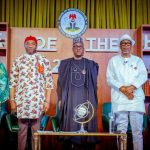
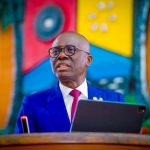
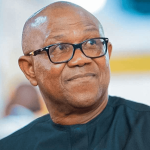
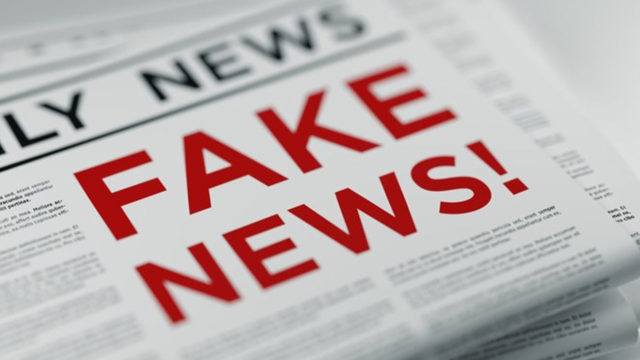

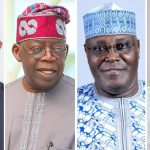
The point of view of your article has taught me a lot, and I already know how to improve the paper on gate.oi, thank you. https://www.gate.io/id/signup/XwNAU